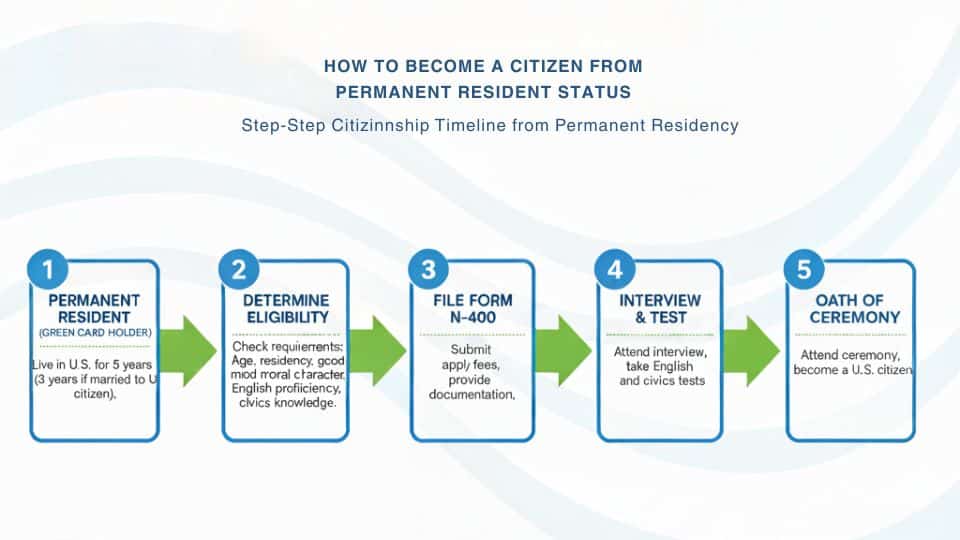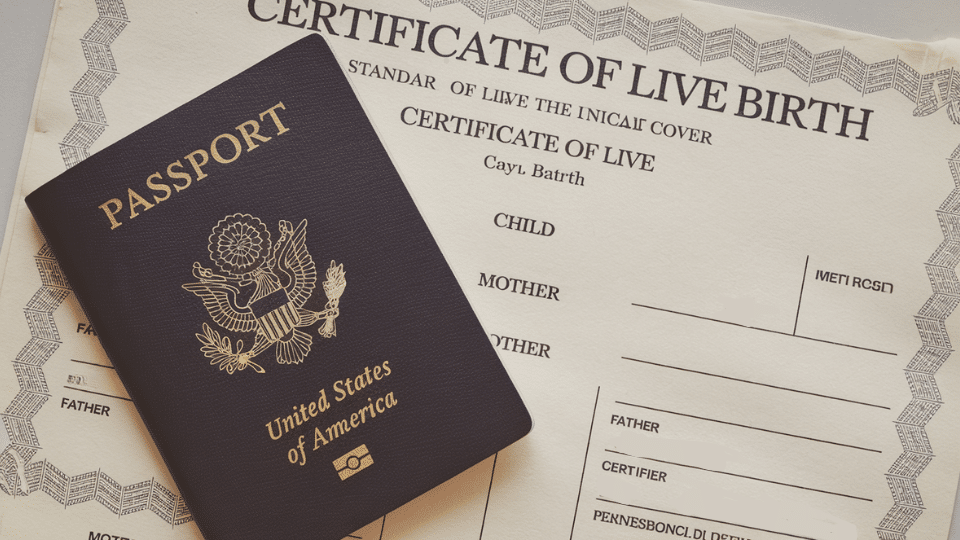Have you ever wondered whether permanent residency is enough, or if citizenship is worth pursuing?
Many people find themselves at this crossroads. You might have your Green Card or permanent resident status. But should you take the next step?
The decision between remaining a permanent resident and becoming a citizen impacts your rights, responsibilities, and associated costs. It also impacts your future opportunities.
Both paths offer valuable benefits, but they come with different rights and responsibilities. Understanding these differences helps you make the right choice for your future.
What is Permanent Residency?
Permanent residency gives you the right to live and work in a country long-term. You’re not a citizen, but you have many similar benefits. This status acts as a bridge between temporary visas and full citizenship.
Permanent residents can stay in their chosen country indefinitely without needing visa renewals. They enjoy most of the same freedoms as citizens in daily life. However, they maintain their original nationality and passport.
Common names for permanent residency include Green Card (United States), Indefinite Leave to Remain (ILR) (United Kingdom), and PR status (Canada and Australia). Each country has its own unique requirements and application processes. The benefits and responsibilities can vary slightly between nations.
Benefits of Permanent Residency:
Permanent residents enjoy several important rights:
- Live and work freely in the country
- Access healthcare and social services
- Own property and start businesses
- Travel in and out of the country
- Sponsor family members for residency
However, permanent residents have limited political rights. You cannot vote in most elections. You are also ineligible to run for public office.
Pro Tip: Most countries require you to maintain physical presence in the country and renew your status every few years. You must follow all local laws and report address changes to immigration authorities.
What is Citizenship?
Citizenship gives you full membership in a country. You gain all the rights and responsibilities of a citizen. This represents the highest level of legal status you can achieve in any nation.
Citizens enjoy complete integration into their adopted country’s political and social systems. They enjoy lifetime security and cannot easily lose their status. Citizenship often comes with emotional benefits as well, creating a deeper sense of belonging and identity.
Most permanent residents obtain citizenship through the naturalization process. This is the legal process of becoming a citizen after meeting specific requirements.
The naturalization process varies by country but typically involves residency periods, language tests, and civic knowledge exams. Some countries also require you to take an oath of allegiance to your new nation.
Benefits of Citizenship:
Citizens have complete rights that permanent residents lack:
- Vote in all elections
- Run for public office (with some exceptions)
- Hold certain government jobs that require citizenship status
- Get full passport protection when traveling abroad
- Cannot be deported for criminal activities, like permanent residents can be
- Pass citizenship to children born abroad automatically
Pro Tip: The citizenship process usually includes language proficiency tests, civics and history exams, background checks, and an oath of allegiance ceremony.
Key Differences: Citizenship vs Permanent Residency
Understanding the key differences between citizenship and permanent residency is crucial. This table shows what each status offers:
| Aspect | Permanent Residency | Citizenship |
|---|---|---|
| Voting Rights | Limited or no voting | Full voting rights |
| Travel | May need a visa for some countries | Stronger passport privileges |
| Deportation Risk | Possible for serious crimes | Protected from deportation |
| Government Jobs | Limited positions available | Access to all government roles |
| Duration | May need renewal | Permanent status |
| Cost | Lower initial fees | Higher application costs |
| Family Benefits | Can sponsor some relatives | Can pass citizenship to children |
The biggest difference is political participation. Permanent residents cannot vote in federal elections. Citizens have full voting rights and can participate in shaping government decisions.
Some countries allow dual citizenship. Others require you to give up your original nationality. Check your home country’s rules before applying for citizenship.
Path to Citizenship from Permanent Residency

Getting citizenship from permanent residency follows these general steps.
Step 1: Meet Residency Requirements: You must reside in the country for the required period, typically 3-5 years, as a permanent resident. You need to maintain continuous residence during this time.
Step 2: Prepare Your Application: Gather the required documents and study for the citizenship test. You also need to pay application fees at this stage.
Step 3: Submit and Wait: You file your citizenship application and attend a biometrics appointment. Then you wait for processing to complete.
Step 4: Take Tests and Interview: You must pass a language proficiency test and complete a civics examination. You also attend a citizenship interview during this step.
Step 5: Oath Ceremony: You take the oath of allegiance and receive a citizenship certificate. You can then apply for a passport as a new citizen.
Citizenship Timeline
Processing times vary by country and current application volumes.
Preparation time takes 3-6 months to gather documents and study for tests.
Application processing usually requires 8-18 months for government review and scheduling.
The total timeline from start to oath ceremony is typically 12 to 24 months.
Pro Tip: Start preparing early. Study materials and gather documents while your permanent residency is still valid.
Conclusion
Citizenship vs permanent residency comes down to your long-term goals. Permanent residency provides stability and most daily benefits. Citizenship gives you complete rights and security.
Consider citizenship if you want to vote, work in government, or travel with stronger passport protection. The citizenship fees and timelines are worth it for full membership benefits.
Permanent residency may be sufficient if you’re satisfied with your current rights and don’t require political participation.
The choice depends on your personal situation and future plans. Both options offer valuable benefits for building your life in a new country.
Are you considering the leap from permanent residency to citizenship? What’s holding you back?






































